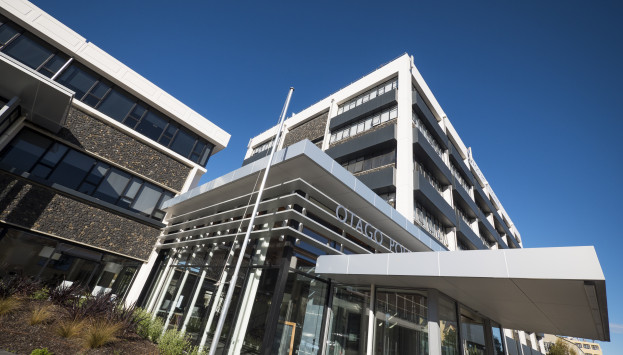Otago Polytechnic has submitted its alternative model for restructuring the Vocational Education sector – one that it believes will result in a high-performing and high-quality Vocational Education system, of which New Zealanders can be justifiably proud.
The Otago Polytechnic model introduces much-needed centralisation of key functions yet retains the best qualities of the currently high-performing polytechnics.
Most importantly, Otago Polytechnic’s proposed new system designs in flexibility, responsiveness and innovation – all essential ingredients of a world-class Vocational Education system.
Otago Polytechnic Chief Executive Phil Ker says, “We appreciate Education Minister Chris Hipkins’ willingness to listen to our concerns and are optimistic that our refinements of his original model will be taken on board.”
The proposals for the reform of the vocational education sector in New Zealand have much to be commended and we support:
- The consolidation of all public sector vocational delivery to Institutes of Technology and Polytechnics
- The establishment of Industry Skills Bodies (ISB)
- The focus on better serving learners who are in work
- The commitment to a funding system which addresses the complexity of delivery in New Zealand and the inadequacy of current levels of funding
- An appropriate level of centralisation of the ITP sector
The proposal to merge 16 institutes of technology and polytechnics (ITPs) into one institution will not serve New Zealand’s communities, employers and learners as well as it might.
Our refined model focuses on the establishment of a vocational education system rather than a single institution, although the system would have a head office identity.
There is considerable merit in having a sector which plans and behaves as a system in the interests of New Zealand as whole, at the same time strengthening individual providers through centralised support and thereby strengthened educational provision in the regions of New Zealand.
This refined model also provides the opportunity for the best of the high-performing current institutions to be replicated across all of the providers in the system.
Otago Polytechnic acknowledges the depth of support it has enjoyed from a wide cross-section of the community, from learners and parents, to elected officials, businesses and stakeholders, to various global partners.
Submissions on the Government’s reform of the Vocational Education sector close on Friday, 5 April.
A Government decision is expected in June.
Summary of responses and recommendations (note: this summary is based on the full submission, attached as PDF)
Otago Polytechnic supports:
- the consolidation of workplace training and apprenticeships to institutes of technology and polytechnics
- the establishment of industry skills bodies to set standards for vocational training
- the commitment to a new “fit for purpose” funding system
- the establishment of a vocational education system with an appropriate level of centralisation and appropriate autonomy for regional providers
- preservation of the academic freedom of staff and institutions as currently provided in the Education Act 1989, contextualised to the new model
- the establishment of a shared services entity for curriculum development for the system
- the establishment of centres of vocational excellence as component parts of the new system
Otago Polytechnic does not support:
- the reform proposal as is to merge the current 16 ITPs into a single institution
- the narrow definition of vocational education which excludes degree and postgraduate teaching and learning
- the proposal that ISBs set assessment, undertake moderation, approve programme design
- the proposal that Open Polytechnic be New Zealand’s sole provider of on-line learning
Otago Polytechnic recommends:
- the establishment of a vocational education system for New Zealand based on a refinement of the structural proposal as follows:
- a system head office to be responsible for planning, coordinating and oversight of the system as a whole, with powers to intervene in the event of failure of either individual providers or of provision
- a number of regional centres responsible for meeting the training and education needs of learners and employers in their region, or nationally if mandated to do so
- legislative functions and decision making rights of the system head office and the regional providers
- legal status for regional centres as semi-autonomous institutions with regional governance
- the functions of the head office and the regional centres to be as set out in this submission
- development of a funding system which recognises the different and complex cost drivers in our regions and which includes:
- a base grant for infrastructure at campus and sub campus level
- a population dispersal grant to recognise regions with low population densities
- a social index grant to recognise the socio-economic makeup of regions
- additional funding to support students with mental health issues
- additional funding to support Māori and Pasifika achievement
- establishment of a shared service centre for learner support to augment on-campus support services
- establishment of training and development institutes for leadership and academic staff development
- that no decision be made by Government to mandate a single provider for on-line learning, but to require the new system head office to evaluate all of the on-line service providers to ensure an informed decision on on-line provision
- that a clear and unequivocal statement be made that degree and postgraduate level teaching will continue as part of the vocational education sector mandate
- that applied research be an integral part of the vocational education sector with responsibilities for both the central agency and the regional centres
- that there be a phased transition to the new system: three years for the transfer of industry training/apprenticeships to ITPs and a minimum of two years in which current ITP providers continue business as usual
- that there be an increase in funding rates for 2020 to address cost increases which have already occurred in the ITP sector
- that a focused intervention occur for each of the ITPs currently in severe financial strife to address the underlying causes of their financial difficulties
- reviews are undertaken of the future roles of both NZQA and TEC given that there will be significant quality functions and intervention powers for the new system agency
Published on 8 Apr 2019
Orderdate: 8 Apr 2019
Expiry: 30 Jun 2019






